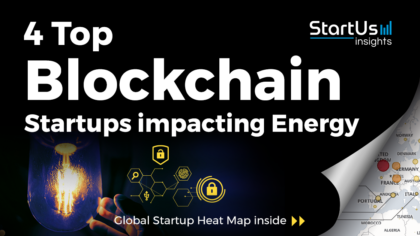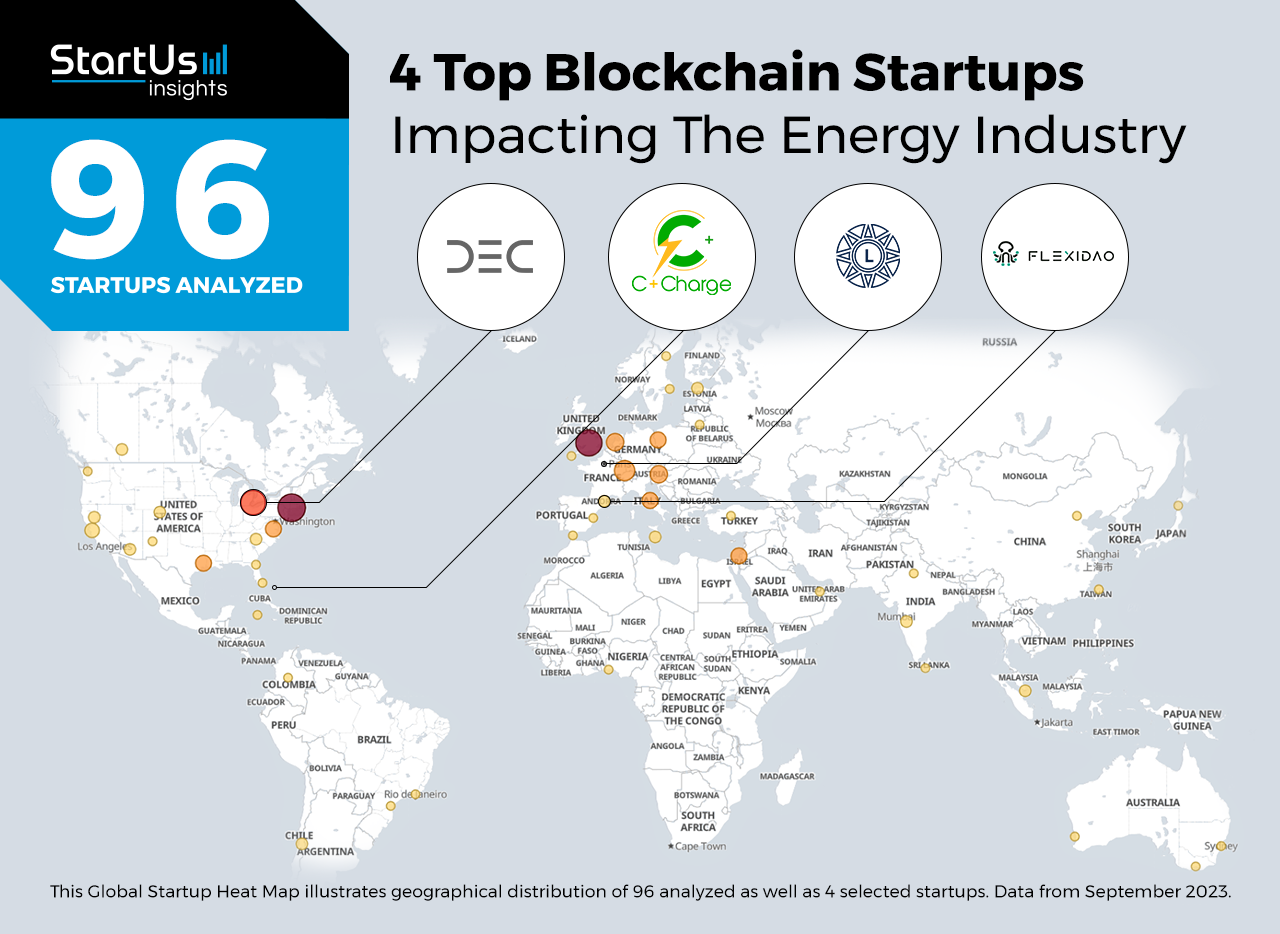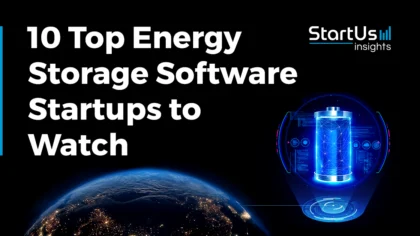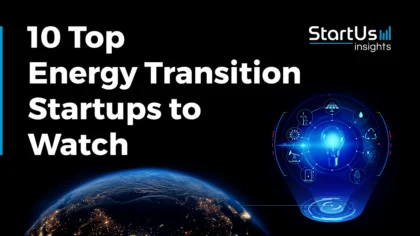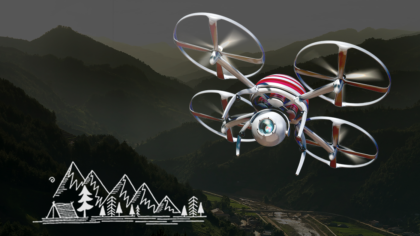Accelerate Productivity in 2025
Reignite Growth Despite the Global Slowdown
Our Innovation Analysts recently looked into emerging technologies and up-and-coming startups working on solutions for the energy sector. As there is a large number of startups working on a wide variety of solutions, we decided to share our insights with you. This time, we are taking a look at 4 promising blockchain energy companies.
Heat Map: 4 Top Blockchain Energy Companies
Through the Big Data & Artificial Intelligence (AI)-powered StartUs Insights Discovery Platform, covering over 3 790 000+ startups & scaleups globally, we identified 96 blockchain energy projects. The Global Startup Heat Map below highlights the 4 blockchain energy startups you should watch as well as the geo-distribution of all 96 energy blockchain startups & scaleups we analyzed for this research. Based on the heat map, we see high startup activity in the US and the UK. These energy blockchain companies work on solutions ranging from P2P energy trading and EV charging to sustainability attribution.
Interested to explore all 90+ blockchain energy startups & scaleups?
4 Top Energy Blockchain Projects
Lightency advances Peer-to-Peer (P2P) Energy Trading
Blockchain networks enable customers to trade electricity and unite a multi-level system of electricity producers in one network. In such a decentralized system, all transactions are carried out directly in a network where all participants are equal and electricity is more affordable for everyone. A record cannot be altered retroactively, without altering all subsequent blocks and bypassing the centralized electricity distribution system.
Lightency, a French green-tech startup, develops a blockchain-based P2P electricity trading platform. The energy is produced, consumed, and exchanged locally using the platform, which lowers cost and increases efficiency. With micro-grid implementation, they ensure better grid control and stabilization and enhanced power performance by distributing energy resources.
MotionWerk democratizes Electric Vehicle (EV) Charging
EVs still face substantial obstacles to customer adoption since the shortage of public charging infrastructure can dissuade potential buyers. Blockchain applications that assist the management of, and payment for, EV charging increase energy efficiency. Blockchain networks enable private owners of charging infrastructure to sell charging services to EV owners and improve the appeal and uptake of EVs.
C+Charge is a Bahamas-based startup that allows EV drivers to earn credits by charging their vehicles on the blockchain. Users do not need to own an EV to participate. Its roadmap details plans to install electric vehicle chargers, launch a mobile app, partner with hardware manufacturers and automakers, and list the token on exchanges. Notable partnerships have been announced with companies like Domino’s, which plans to add 800 EVs and charging stations to its fleet for sustainable pizza deliveries.
FlexiDAO provides Sustainability Attribution
Unstable predictions about carbon emissions prevent seamless trading and distribution of renewable attributes across regions. Blockchain technology is able to accurately track and record emissions, thereby accelerating clean energy deployment and encouraging carbon emissions reduction. Governments can use distributed ledgers to record and trade the carbon emitted from production, transport, and usage of energy. To avoid carbon pricing policies, companies start to develop blockchain networks to record and trade attributes of sustainability such as renewable energy credits and carbon credits.
FlexiDAO, a CleanTech startup based in Spain, supports energy retailers to build service-driven business models by providing them with enterprise-grade business applications, using an open-source blockchain built on Ethereum. Energy generation data gathered from national data hubs, smart meters or SCADA (supervisory control and data acquisition) is recorded, creating a digital unit of energy produced that is assigned to consumption based on the contractual agreements defined. This allows for demonstrable emission reductions by matching green energy generation with consumption in real-time.
Drone Energy develops an Industrial Smart Grid Technology
Blockchain technology enables decentralized data exchange and remote control of the energy flow to a particular area by monitoring usage statistics. The simplified trading framework helps in setting up real-time energy markets and identity-preserving transactions at much lower costs. However, the high computational and power requirements of IoT devices are important challenges that restrict the application of blockchain in IoT and smart grids.
The US-based startup Drone Energy makes energy grids more efficient through an industrial smart grid technology that pairs high-density computing to match producer supply and demand. They develop a decentralized, on-demand energy supply architecture that maximizes utilization, processing power, and profitability, providing sustainable blockchain energy management. They host, secure, and manage third-party blockchains, both private and public, in a low-cost scalable format.
Discover All Emerging Blockchain Energy Startups
The energy blockchain startups showcased in this report are only a small sample of all startups we identified through our data-driven startup scouting approach. Download our free Industry Innovation Reports for a broad overview of the industry or get in touch for quick & exhaustive research on the latest technologies & emerging solutions that will impact your company!
